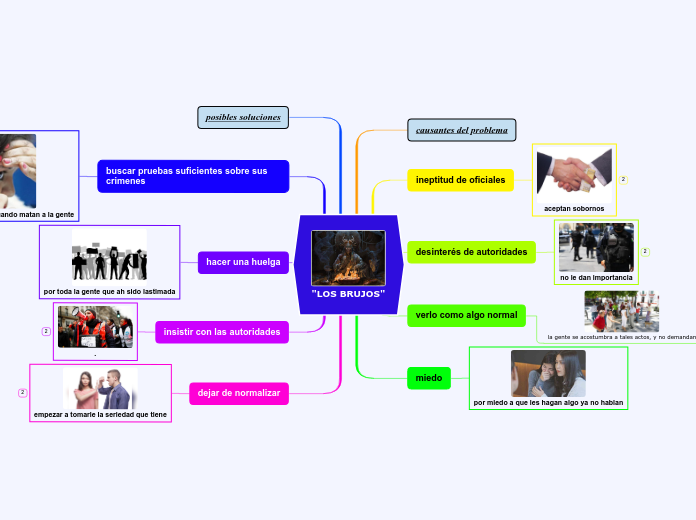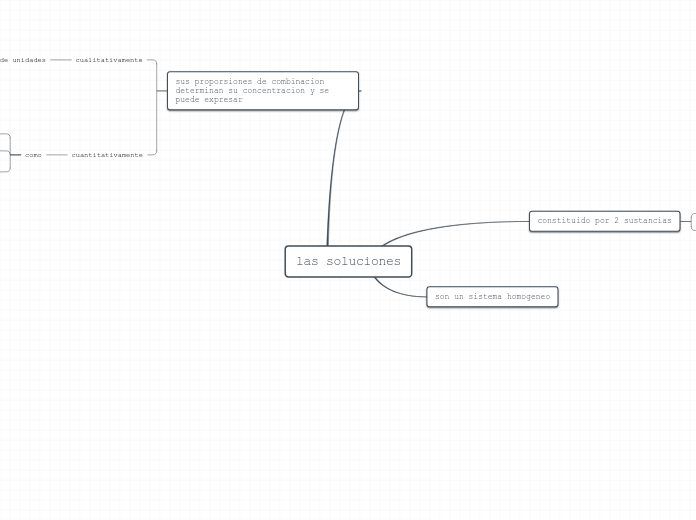"LOS BRUJOS"
The part of speech is a category to which a word is assigned according to its syntactic functions. In English the main parts of speech are noun, pronoun, adjective, determiner, verb, adverb, preposition, conjunction, and interjection.
dejar de normalizar
A conjunction is a word like 'if' 'but' or 'and' which is used to connect sentences or clauses together.
empezar a tomarle la seriedad que tiene
Subordinating conjunctions are conjunctions that are used at the beginning of subordinate clauses. Some examples of these conjunctions are: although, after, before, because, how, if, once, since, so that, until, unless, when etc.
Although it was raining, I went out.
insistir con las autoridades
A preposition is one of the most exciting parts of grammar. A preposition is used to describe the location of something in relation to something else.
.
A group of words used with the force of a single preposition is called phrase preposition.
according to, by means of, owing to, with a view to, in place of, in front of, etc.
hacer una huelga
An interjection is used to express emotion in a sentence.
Think of other interjections!
por toda la gente que ah sido lastimada
buscar pruebas suficientes sobre sus crimenes
An adverb is used to describe a verb, but it can also describe an adjective or another adverb.
Adverbs normally help paint a fuller picture by describing how something happens.
hacer las denuncias cuando matan a la gente
Always, usually, Never
posibles soluciones
A numeral is a word or phrase that describes a numerical quantity.
Some theories of grammar use the word 'numeral' to refer to cardinal numbers that act as a determiner to specify the quantity of a noun, for example the 'two' in 'two hats'.
miedo
An article is a word used to modify a noun, which is a person, place, object, or idea. Technically, an article is an adjective, which is any word that modifies a noun.
por miedo a que les hagan algo ya no hablan
Indefinite articles are the words 'a' and 'an.' Each of these articles is used to refer to a noun, but the noun being referred to is not a specific person, place, object, or idea. It can be any noun from a group of nouns.
verlo como algo normal
A pronoun is a word that can be used in place of a noun, typically after the noun itself has already been stated.
la gente se acostumbra a tales actos, y no demandan
desinterés de autoridades
An adjective is a word that's used to describe a specific noun and to provide more detail to the listener.
no le dan importancia
Expresses a comparison between two entities or groups of entities in quality or degree.
He is taller than she is.
ineptitud de oficiales
A noun is defined as a person, place, thing or idea. Proper nouns always begin with a capital letter. Common nouns, which are general words, such as 'cars,' are not capitalized.
aceptan sobornos
Countable nouns are nouns that can be counted, even if the number might be extraordinarily high.
Uncountable nouns are nouns that come in a state or quantity which is impossible to count; liquids are uncountable, as are things which act
like liquids.
Create sentences
Cats, Rain
causantes del problema
A verb is an action word or 'doing' word that signifies movement in some way.









